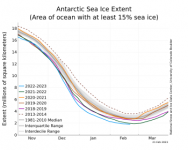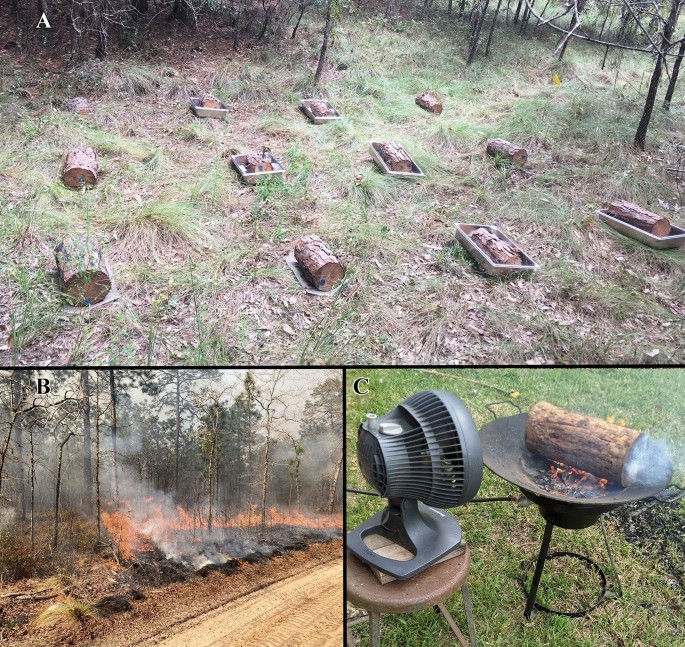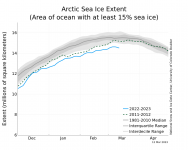Antarctic sea ice settles on record low extent, again
February 27, 2023
On February 21, Antarctic sea ice likely reached its annual minimum extent of 1.79 million square kilometers (691,000 square miles). This the lowest sea ice extent in the 1979 to 2023 sea ice record, setting a record low for the second straight year.
Please note that this is a preliminary announcement. Changing winds or late-season melt could still reduce the Antarctic ice extent. NSIDC scientists will release a full analysis of the Antarctic and Arctic February conditions in early March.
February 27, 2023
On February 21, Antarctic sea ice likely reached its annual minimum extent of 1.79 million square kilometers (691,000 square miles). This the lowest sea ice extent in the 1979 to 2023 sea ice record, setting a record low for the second straight year.
Please note that this is a preliminary announcement. Changing winds or late-season melt could still reduce the Antarctic ice extent. NSIDC scientists will release a full analysis of the Antarctic and Arctic February conditions in early March.






